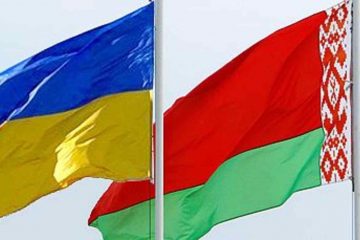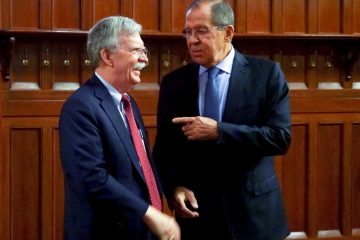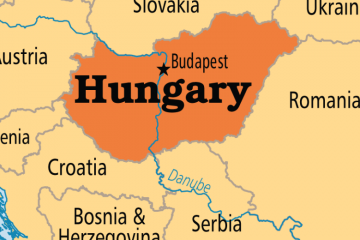Yuliana Romanyshyn
Volodymyr Groysman’s government marked their first 100 days in the office on July 23 by examining the results. During this time, the government has worked on transforming the energy sector, established economic prices on the natural gas market, and simplified the registration of medicine.
However, think tank experts evaluated the government’s performance as below the average, giving them only 4.6 points out of 10.
The analytics organization Ilko Kucheriv Democratic Initiatives Foundation and the think tank Reanimation Package of Reforms conducted a poll among experts evaluating Groysman’s government. Overall, the experts assessed that the new government’s performance over the first 100 days was mediocre– the ministers got 4.6 points out of 10 points, while Groysman’s work was rated slightly better with 5.3 points.
Among the achievements, the experts considered Groysman’s cooperation with President Petro Poroshenko as the most successful issue (6.2 points). Also, the experts evaluated the cooperation with international organizations and civil society at approximately the same mediocre level as before, at around 5 points.
In contrast, the appointment of new staff qualified as the biggest failure of this government with 3.5 points. The compromise of retaining the highly criticized head of the State Fiscal Service Roman Nasirov was named as another defeat of the current government.
“Today, it looks like the government works very weakly as a team,” Ihor Koliushko, a co-chair of the Council of Reanimation Package of Reforms said at the 100 days of government forum on July 21. According to him, the government wasn’t appointed by the prime ministers and was “a compilation of different political party interests.”
Privatization reforms is another failure of the government. The Odesa Portside Plant was set to be privatized on May 18 with the starting price for the stake $521 million.
“Our task is to have the largest possible amount of participants,” Groysman said in his statement on May 18. “We will begin this process of privatization, and must demonstrate to Ukrainians and to the entire world, what open, public, and effective privatization really is.”
However, Groysman’s words haven’t come true as oligarchic-meddling led to an absence of bids. The State Property Fund declared the tender void on July 18.
In its program for the year, the government promised to ensure a high standard of living, to give the macroeconomic stability, fight against corruption, reform the Fiscal Service, grant favorable conditions for business development, and conduct decentralization. At its last government’s meeting on July 22, the prime minister declared the launching of an online monitoring system for all ministries to control their activity.
Some of the ministries also reported specifically on their key achievements over last 100 days.
Reform of medicine
The Health Ministry remains the only top institution without a head. After Georgian Alexander Kvitashvili resigned as minister with Arseniy Yatsenyuk government, the notoriously corrupt healthcare ministry continues without a leader.
In spite of lacking a top official, the intuition appears to be able to adopt several decisions. For instance, the ministry canceled repeated licensing for medicine that is already licensed in the European Union and entrusted public procurement to the international medical organizations.
“The prime minister took personal responsibility for the (healthcare) sector, and when the prime minister says something, something will eventually be done,” Koliushko pointed to the positive side of not having a healthcare minister.
“This is a litmus test, showing that if the (prime) minister doesn’t determine and support key reforms, these reforms wouldn’t be implemented,” he added.
Meanwhile, Ulyana Suprun, a volunteer and director of Patriot Defence initiative, was appointed as a deputy health minister on July 22. American-Ukrainian, Suprun worked as a volunteer in Ukraine since 2013, providing tactical medical training to Ukrainian troops and leading the school of Medical Rehabilitation at the Ukrainian Catholic University in Lviv.
Infrastructure Ministry
In Groysman’s government, Volodymyr Omelyan was promoted from his position as deputy to the previous Infrastructure Minister Andriy Pivovarsky. Over his 100 days on the job, Omelyan has started reforming of the state governing body of roads Ukravtodor. Groysman announced an increase in the cost of repairs from $4 to $19 billion.
The Infrastructure Ministry introduced the system of the weight control for trucks to prevent the destruction of roads by heavy vehicles. According to the new measure, the weight of a vehicle shouldn’t exceed 40 tons.
Economic Development
In his 100 days’ report, the Minister of Economic Development Stepan Kubiv highlighted several newly adopted measures.
For instance, Ukraine and Canada boosted their bilateral relationship through signing the free trade agreement on July 11. After ratification, the agreement is expected to help Ukrainian producers launch into the Northern American markets.
Also, though introduced by ex-Minister Aivarus Abromavicius, Kubiv said that Prozorro, the state procurement service, helped to save more than Hr 2 billion before it officially launched on April 1. Plus, Prozorro won a Public Sector Award at the international World Procurement Awards.





Comments